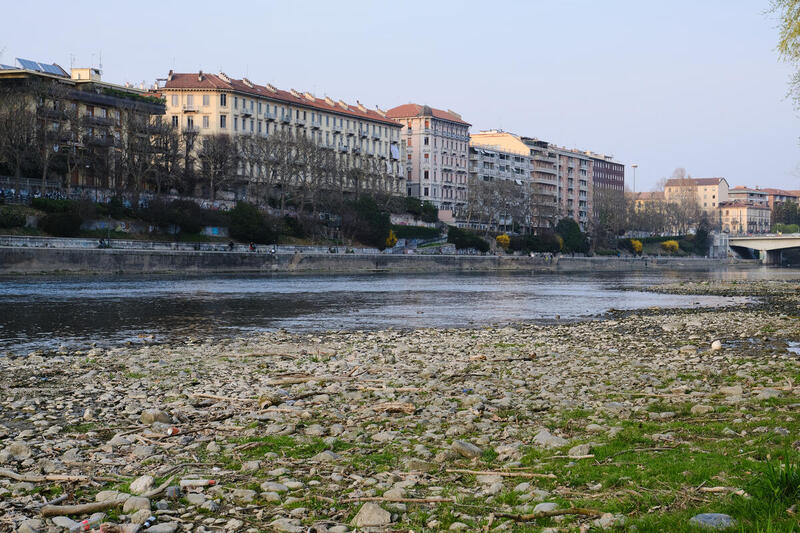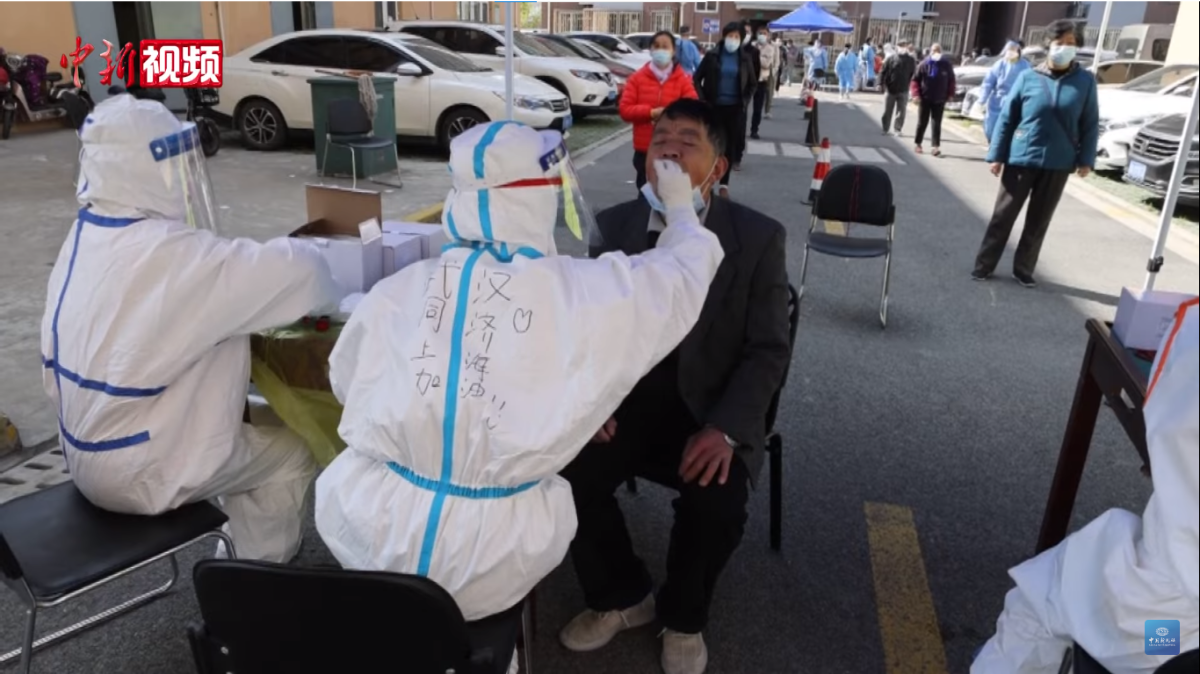Welcome to Factal Forecast, a look at the week’s biggest stories from the editors at Factal.
We publish our forward-looking note each Thursday to help you get a jump-start on the week ahead.
Italy has declared a state of emergency due to the country’s worst drought in 70 years. In this week’s Factal Forecast podcast, Senior Editor Jimmy Lovaas and Editor Jaime Calle Moreno discuss what it means for the country’s agricultural sector.
Listen now or download on your favorite platform.
Week of July 8-15
A Look Ahead
July 8
French airport workers strike
French airport staff are expected to hold a new strike starting Friday, continuing a series of walkouts and causing more disruption during the busy summer month.
What’s happened so far
Last Saturday, dozens of flights were canceled at Paris’ Charles de Gaulle airport with airport staff demanding better wages and working conditions. The French strikes follow similar action in other European countries such as Spain, Portugal and Belgium.
The impact
Europe’s airports and the travel industry more broadly are already facing a tough summer with staff shortages causing long lines and disruption. The strikes, which come as people resume travel after two years of the coronavirus pandemic, are expected to inflict more pressure on the industry to improve its pay and working conditions. French unions also announced plans to hold walkouts between July 13 and 17 if their conditions are not met.
July 8
Shanghai reopens amid new mass testing plan
Authorities in Shanghai have given the green light to reopen movie theaters and cultural venues starting Friday in a further loosening of coronavirus-related restrictions, but a new round of testing for some 25 million people is raising fears of a return to strict lockdown.
What’s happened so far
Shanghai, China’s commercial hub and largest city, attempted a reopening in early June following a draconian two-month shutdown only to lock down some districts again days later, complying with the country’s zero-coronavirus rules. Officials have taken a more targeted approach following that lockdown, choosing to allow some venues such as libraries to remain open but forcing karaoke bars to close.
The impact
Observers hope this targeted loosening of restrictions signals a tentative relaxation of China’s strict coronavirus-related rules that have put the brakes on economic development and put pressure on global supply chains, However, fears of another lockdown remain amid the spread of new cases and a new subvariant, which has already prompted a lockdown in Xi’an.
July 10
UN Security Council meeting on Syria aid route
The United Nation’s final aid route from Turkey into northwest Syria is likely to be closed Sunday as Russia is expected to veto renewal of the humanitarian organization’s delivery mandate.
What’s happened so far
Russia, which is allied with the Syrian regime, voted to shut down all other U.N. aid routes into Syria in 2020 and only agreed to retain the Bab Al-Hawa crossing in 2021 after intense negotiation. Russia claims maintaining the aid route violates Syria’s sovereignty and says humanitarian support can be delivered via Damascus.
The impact
Numerous U.N. officials and other NGOs, including Amnesty and Human Rights Watch, say shuttering the route will have a catastrophic impact on the 13.4 million Syrians who rely on humanitarian support. Contingency plans to continue providing aid are reportedly in place, including delivering supplies through a consortium of NGOs with the U.N. providing “offshore” support, although this presents a greater risk for workers on the ground.
July 10
Japan upper house election
Approximately half of the 248 seats in Japan’s House of Councillors are up for election Sunday, as Prime Minister Fumio Kishida hopes to secure a majority for his ruling coalition.
What’s happened so far
The latest polling shows Kishida’s Liberal Democratic Party and its partners on pace to hold at least 125 seats in the upper house, including members not up for election. That marks a change from earlier surveys showing weakening support for the government amid inflation and high fuel prices.
The impact
The potential for constitutional reform in the near-term also hinges on the result of Sunday’s election. The ruling parties and opposition Nippon Ishin and Democratic Party for the People need to win at least 82 seats combined to maintain a two-thirds majority to propose any changes.
July 11
Nord Stream 1 maintenance halts gas flow to Germany
The crucial Nord Stream 1 gas pipeline to Germany will undergo 10 days of maintenance starting Monday.
What’s happened so far
Russian energy giant Gazprom announced the maintenance work, indicating that it would halt the flow of Russian gas to Germany, on which Berlin heavily relies for its energy consumption. In response, Reuters reports that Germany will urgently pass a new gas tax on consumers on July 8 in a move intended to alleviate suppliers dealing with supply shocks and rapidly rising import prices.
The impact
Germany, Europe’s biggest economy and industrial powerhouse, is notoriously reliant on Russian gas. While Russia’s February invasion of Ukraine and the subsequent western sanctions wall have sent shockwaves across the global economy, Germany has been hit particularly hard in the energy sector. Germany has gone so far as to restart coal plants to make up for the energy crunch, a move some consider baffling while Berlin steadfastly refuses to reopen shuttered nuclear plants.
July 12
Mexican president visits White House
U.S. President Joe Biden will host Mexico’s President Andrés Manuel López Obrador at the White House on Tuesday.
What’s happened so far
The bilateral meeting is the first since López Obrador skipped the Summit of the Americas last month in protest of Biden excluding leaders from Cuba, Nicaragua and Venezuela. López Obrador’s visit also comes amid a surge in undocumented immigration at the U.S.-Mexico border and increasing criticism of Biden’s policies in the wake of recent migrant deaths.
The impact
The White House said the leaders will be discussing multiple issues, including their efforts to address global challenges like food security. They’re also expected to discuss cooperation on immigration, joint development efforts in Central America, security, climate and energy.
July 13
Biden visits Israel and Saudi Arabia
U.S. President Joe Biden is set to visit Israel and Saudi Arabia during a regional tour beginning Wednesday.
What’s happened so far
Biden will land in Israel, where he will likely meet newly sworn-in Prime Minister Yair Lapid despite the Knesset’s recent dissolution and the country’s upcoming elections in November. The White House said Biden would then go to the West Bank to speak with Palestinian Authority officials to reiterate the United States’ “strong support for a two-state solution.” In Saudi Arabia, Biden will meet with Crown Prince Mohammed bin Salman, a move criticized by human rights activists and fellow Democrats following the assassination of Jamal Khashoggi and Biden’s campaign pledge to make Saudi Arabia a “pariah.”
The impact
The May killing of an Al Jazeera journalist in the West Bank is likely to come up in meetings with Palestinian authorities, after a U.S. investigation found she was likely killed by “gunfire from IDF positions.” The U.S. ambassador to Israel also said Biden would be unlikely to announce a normalization deal between Israel and Saudi Arabia during his visit, but Iran is expected to be discussed. As Biden’s first visit to Saudi Arabia, there is also pressure to re-approach Saudi oil production in the wake of Russia’s invasion of Ukraine, though the White House has stressed the trip is more focused on security issues.
What Else Matters

Drought emergency in Italy
On Monday, Italy’s Prime Minister Mario Draghi and the council of ministers approved a state of emergency due to drought and water scarcity in five of the country’s northern regions, allocating $38 million to tackle the issue until the end of 2022. From December until now, high temperatures and a severe lack of rain and snow melt have exacerbated conditions for the normally plentiful Po and Adige basins. Some municipalities across the north have already announced water rationing and other ad hoc measures.
Watch for: This is by many standards one of the worst droughts Italy has seen in decades. With 60 percent less rain than other yearly averages, other regions in central Italy, such as Umbria and Lazio, are also requesting state of emergency measures from the government. There are heat waves forecasted across Europe, which will only worsen Italy’s water issue, which is currently affecting a third of the country. Incidents such as the Marmolada mountain’s glacier collapse are related and may occur again, and other regions will follow suit with emergency measures, water rationing, shortages of agricultural produce and heavy fines for those that violate the extraordinary measures.
Ghana protests
Rare protests against economic hardship broke out in Ghana’s capital Accra at the end of June, prompting the government of one of Africa’s most stable nations to seek aid from the International Monetary Fund to combat record inflation and boost growth.
Watch for: The IMF will send a team to the West African country, the continent’s second-biggest gold producer, from July 6-13 to discuss financial aid and reforms. Recently, Ghanian authorities reversed prior rejection of a loan from the agency in the wake of rallies that led to clashes between hundreds of protesters and police in central Accra. With general elections looming in 2024, opposition politicians and union leaders, including those for university teachers, are voicing their opposition to the IMF due to the prospect of austerity measures that are usually tied to its assistance.
Extended Outlook
What’s on our radar in the coming weeks…
July 8-15
July 8
- French airport workers strike
- Shanghai opens cultural venues
- Germany plans new tax on gas
July 10
- Japan upper house election
- U.N. Security Council meeting on Syria aid route
- Congolese National Assembly election
July 12
- EU Economic and Financial Affairs Council
- Mexican and U.S. leaders meet in Washington
- U.S. House committee investigating Jan. 6 holds hearing
July 13
- President Biden visits Israel, West Bank and Saudi Arabia
July 14
- Bastille Day in France
- EU affairs ministers informal meeting in Prague
July 16-22
July 17
- South Ossetia referendum
July 18
- EU Foreign Affairs Council meeting
- Israel’s Labor party holds primary
- WHO plans emergency meeting on monkeypox
July 19
- MLB All-Star Game
- Tunisia’s Rached Ghannouch faces money laundering charges
- Turkish President Erdogan visits Iran
July 21
- U.K. Royal Mail strike
July 21
- San Diego Comic-Con begins
July 23-29
July 23
- 11th ASEAN Para Games in Indonesia
July 24
- Pope Francis visits Canada
July 25
- Tunisia constitution referendum
July 30-Aug. 5
July 31
- Second round of Congolese National Assembly elections
- Senegalese National Assembly elections
Aug. 2
- Primaries in Arizona, Kansas, Michigan, Missouri and Washington
Aug. 4
- Primaries in Tennessee
Thanks for reading! If you would like the Factal Forecast in your email inbox, you can sign up for free.
Top photo: A man is tested for coronavirus in April 2022 in Shanghai, China, during the country’s two-month lockdown. The city is currently doing another round of testing. (Photo: China News Network / Wikimedia Commons)
What is Factal?
Trusted by many of the world’s largest companies and nearly 300 humanitarian NGOs, Factal is a risk intelligence and collaboration platform that brings clarity to an increasingly noisy and uncertain world.
Powered by a hybrid of advanced AI and experienced journalists, Factal detects early signals, verifies critical details and assesses the potential impact at the speed of social media. From physical incidents and brand mentions to geopolitical developments, Factal offers the most trusted, real-time risk intelligence on the market.
Factal is also home to the largest security and safety collaboration network in the private sector. Members securely share information with other members in proximity to the same incident, both on Factal.com and the Factal app.
Learn more at Factal.com, and we’d love to hear from you.

